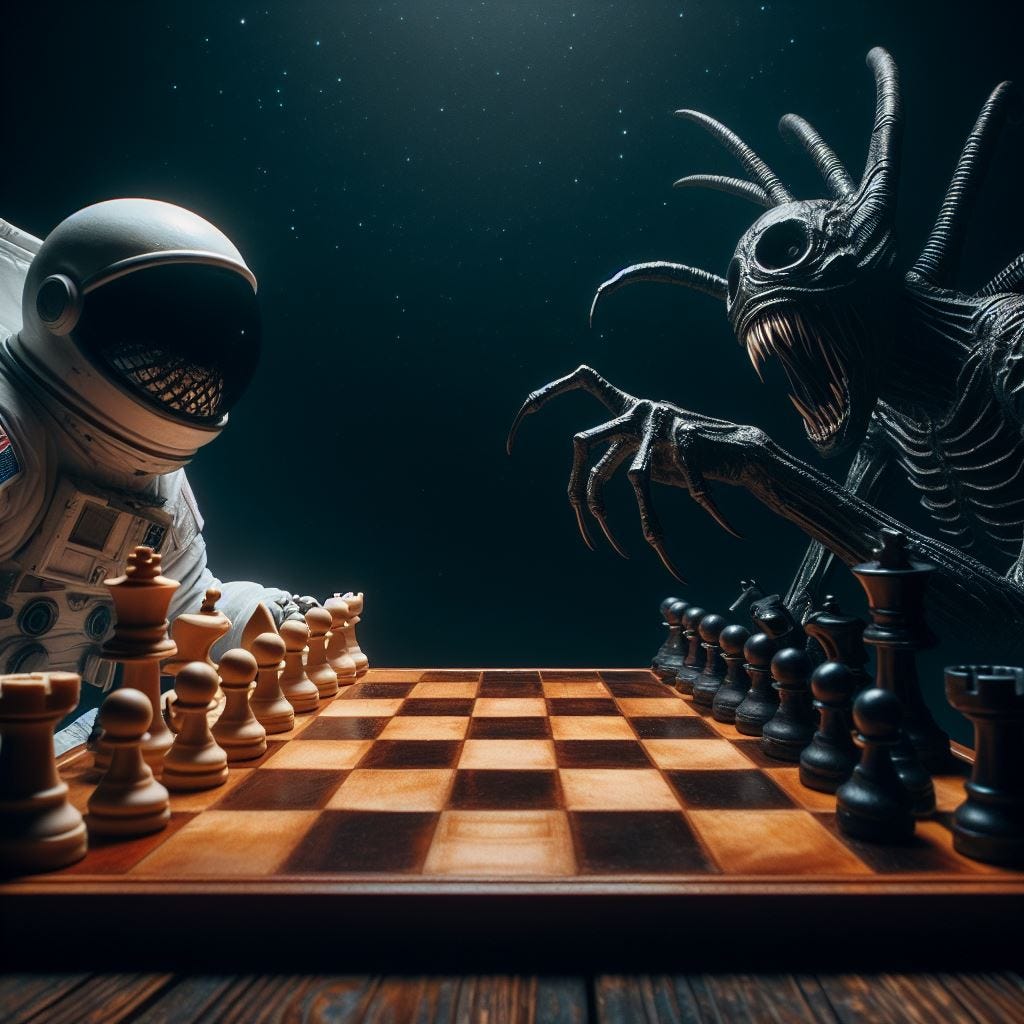On Scary Chess
Why it took me more than 30 years to play against other people.
So, what scares you the most? My school friend asked me. After a few seconds of silence, I answered… playing chess.
That was a long time ago, before I finished university, therefore my memory is not that clear and maybe it wasn’t really the scariest thing, but playing chess was always a challenge to me. I tried to learn how to play a few times but I played only against computers. Usually, failing miserably and losing any interest in getting better.
Being good at chess does not make you intelligent. However, studies do show that your cognition might benefit, as with similar games, but there is no evidence that it changes IQ level, and playing badly doesn’t make you stupid. Unfortunately, I did think that losing equated to being unintelligent, to the extent that I waited more than 30 years to play against other people.
It isn’t just me; our culture perceives good chess players as highly intelligent people. World-class players admit that sometimes losing hurts their self-image. Chess is one of the oldest games that exists, dating back more than 1400 years1. It has passed the test of time, so this perception is deeply rooted in our culture. On the other side of the spectrum, I’ve read that one highly-ranked chess player got a job without an interview just because the company assumed that if he is good at chess then he will also be good at the job.
It’s a game but it has no element of luck or randomness. It’s a battle between two brains - and the better prepared player wins. If you win then you played better. All the information is there in front of you on the board. It requires a lot of practice and a systematic approach to learning.
Thankfully, over the years, my perception of making mistakes and being compared to or judged by others evolved so that chess was no longer perceived as scary. Then, when one of my new friends, who occasionally played chess, asked me if I would like to play. He added that it would be fun, so I said yes. I lost of course, but it was fun indeed.
Since then I have regularly played online2 with other players, and sometimes over a physical board. Chess is just a game, but a complex one and the depth of it is not something I’ve committed to explore fully. Progressing slowly whilst still having fun is my goal.
Right now, I consider it one of my hobbies. Chess is a great sandbox for improving your decision making process, exploring how we learn new things, and learning from mistakes. I may write about it more in the future.
Remember, anyone can learn how to play chess. Give it a try if you enjoy playing games and use it as an opportunity to learn something new.
My experience with playing chess taught me something. The fear of being judged can prevent us from exploring new things, and because of that, we may miss something valuable. Now, when I win games, sometimes I hear a past self saying: “I will never ever learn how to play chess!” and the memory of it brings a smile to my face.
Thanks for reading!
I play on lichess.org - it’s a free and open-source Internet chess server run by a non-profit organization of the same name.


